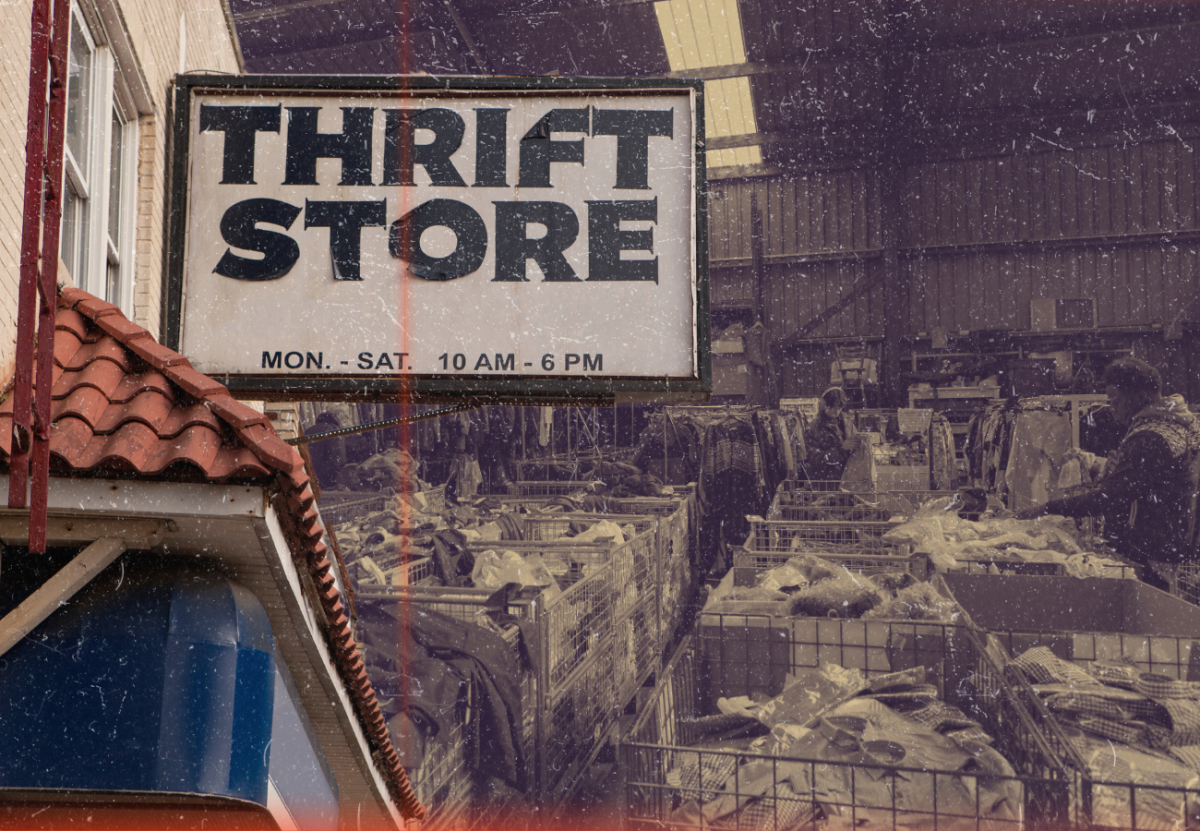Thrifting to resell is ruining the hobby. I am an avid thrifter, and I love watching content involving other people going to thrift stores, specifically the outlets, or ‘the bins’, and showing off their hauls. Thrifting should be a sanctuary of savings and environmental consciousness, not a place where you feel like it’s a race against people using it for profit.
While scrolling through TikTok recently, a video popped up that caught my attention. A man was trying things on and giving voice-over commentary, nothing out of the ordinary. However, when a pair of shoes was too small, instead of putting them back, he pulled out his phone, opened an app that the video revealed he was being sponsored by, and listed them himself for over $100. I find this incredibly icky.
If you’re going to wear it and genuinely get use out of it, all the power to you– I don’t care how much money you make.
However, most ‘thrifters’ are middle-class or lower. According to a 2024 Resale Report from ThreadUp, an online thrifting website, the median annual household income of a Generation Z thrifter is $52,460. This figure is lower than any state median household income and lower than the “middle-class income range” in California, according to a 2023 report by CNBC.
All of those numbers to say that if you see someone thrifting, it’s more likely than not they are not high up on the totem pole of the American economy.
Sophomore Braden Swenningsen said he has had positive interactions with resellers and he appreciates what they do for the environment, but that the bad ones tend to outshine the good ones.
“I think some resellers could be a little bit more annoying than others, and maybe way too competitive in a way, and it just gets in the way of everybody else,” Swenningsen said. “Depends on the reseller for sure, but I really promote the whole idea of recycling good quality clothes and trying to end how much, kind of, newer clothing we keep putting out in the world, just adding a ton to the trash problem.”
I do think that the fewer clothes that are in circulation, the better, but I just don’t feel like this is the right way to go about it.
Sophomore Gwenyth Love said she feels it is “unfair” when resellers turn a dramatic profit on thrifted items. Love said it is “unethical” when resellers grab everything they can with no regard for what the item even is, just taking everything they can in hopes of finding something they can gain from.
“I’ve definitely seen people there that just go in and fill up carts with just a bunch of random stuff, not really looking at it, just kind of grabbing and going. And I have mixed feelings on it. I think, like, reselling as a whole, I don’t think it can be fully ethical,” Love said. “I just don’t think it’s fair for people that genuinely need this stuff. And obviously there’s people that go thrifting that don’t need that, but they’re using it for themselves. They’re buying it for themselves, but resellers are going in, buying a bunch of stuff, and then selling it for three times the original price and I just don’t think that’s fair.”
Swenningsen said it is noticeable when the wrong kinds of resellers actively obstruct or snatch up the best quality items before people who would use them even have a chance to.
“As someone who goes to the bins a lot, you see a lot of people that need to be there, and need to, like, get clothes or items and appliances for themselves,” Swenningsen said. “I’d say just the resellers that are competitive about it, they just kind of get in the way of them and get in the way of getting the good quality stuff,” Swenningsen said.
Thrifting, especially at the bins, is a cheap, environmentally friendly way to shop. Resellers take that magic away when they take an item and slap an above-market value tag on it.







